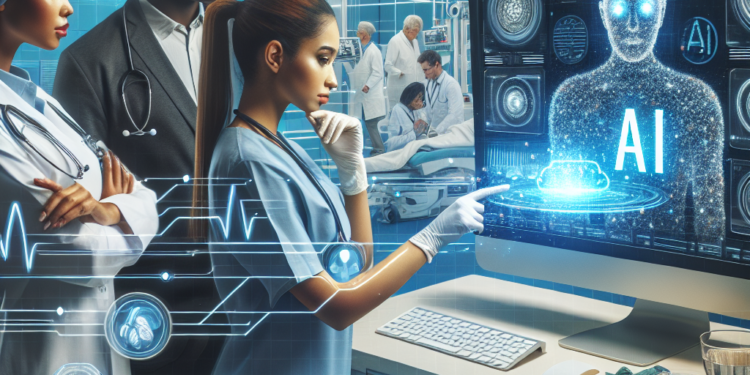Artificial intelligence (AI) has made significant advancements in healthcare in recent years, revolutionizing the way medical professionals diagnose, treat, and manage patient care. This advanced technology has the potential to streamline medical processes, improve accuracy, and enhance patient outcomes. In this article, we will explore the advanced applications of AI in healthcare and how they are transforming the industry.
One of the most significant advancements in AI in healthcare is medical imaging analysis. AI algorithms can analyze medical images, such as X-rays, MRIs, and CT scans, to assist radiologists in identifying abnormalities and making accurate diagnoses. This technology has the potential to detect conditions such as cancer, strokes, and fractures earlier and more accurately than traditional methods. AI-powered imaging tools can also reduce the time and resources needed for image interpretation, leading to faster diagnosis and treatment for patients.
Another major application of AI in healthcare is personalized medicine. AI algorithms can analyze a patient’s genetic data, medical history, and lifestyle factors to predict their risk of developing certain diseases and recommend personalized treatment plans. This personalized approach to healthcare can help medical professionals tailor their interventions to individual patients, improving outcomes and reducing the likelihood of adverse reactions to medication.
AI-powered robots are also transforming the healthcare industry by assisting in surgery and patient care. Surgical robots, such as the da Vinci Surgical System, can perform precise, minimally invasive surgeries with greater accuracy than human surgeons. These robots can also access hard-to-reach areas of the body and reduce the risk of complications during surgery. AI-powered robots can also assist in patient care by providing companionship, monitoring vital signs, and reminding patients to take their medications.
AI technologies are also being used to improve patient outcomes and reduce medical errors. For example, AI-powered decision support systems can help healthcare providers make more informed decisions by analyzing patient data, medical literature, and treatment guidelines. These systems can flag potential medication errors, suggest appropriate treatments, and alert healthcare providers to potential risks or complications. AI-powered chatbots can also assist patients in accessing healthcare information, scheduling appointments, and managing their symptoms.
In addition to improving patient care, AI technologies are also being used to streamline administrative tasks in healthcare. AI-powered tools can automate billing, coding, and other administrative processes, reducing the burden on healthcare providers and freeing up time for patient care. These tools can also analyze large amounts of data to identify trends, predict future healthcare needs, and improve the overall efficiency of healthcare systems.
Despite the numerous benefits of AI in healthcare, there are also challenges and ethical considerations to consider. For example, there are concerns about data privacy, security, and bias in AI algorithms. Healthcare providers must ensure that patient data is protected and that AI algorithms are fair and accurate. Additionally, there are concerns about the potential impact of AI on the workforce, as some jobs may be automated or augmented by AI technologies.
In conclusion, AI is transforming the healthcare industry with its advanced applications in medical imaging, personalized medicine, robotic surgery, patient care, and administrative tasks. These technologies have the potential to improve patient outcomes, reduce medical errors, and streamline healthcare processes. While there are challenges and ethical considerations to address, the future of AI in healthcare looks promising. As technology continues to evolve, AI will play an increasingly important role in shaping the future of healthcare.













